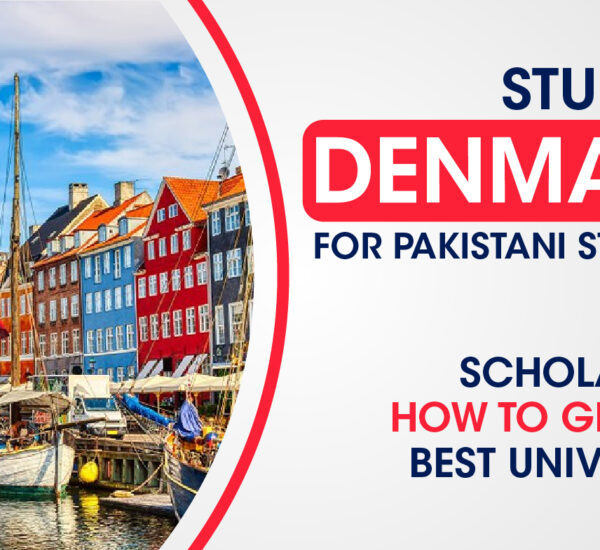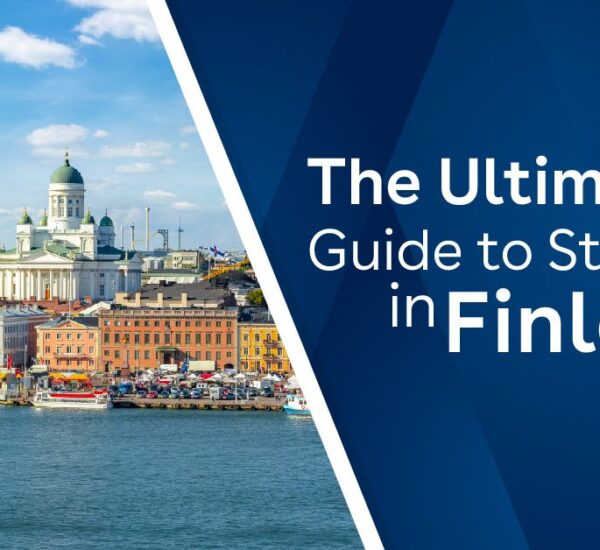Although Norway is a relatively small country, its universities and educational institutions consistently rank among the best in the world—and they offer tuition-free education to international students at the public university level. Studying in Norway not only opens the door to a world-class education, but it also enhances your career prospects both at home and abroad.
From Oslo’s modern campuses to the polar lights in Tromsø, Norway combines stunning natural beauty with an innovative, student-centered learning environment. Students are encouraged to develop critical thinking, collaborate closely with professors, and enjoy a strong work–study balance.
This comprehensive guide will show you how to study in Norway for free, cover tuition-free universities, detail the cost of living, explain Bachelor’s, Master’s, and Ph.D. pathways, and walk you through the application and visa processes.
🌍 Why Choose Norway for Higher Education?
Tuition-Free Education: All public universities charge no tuition fees, even for students from outside the EU/EEA.
High Quality of Teaching: Norwegian institutions emphasize research-led, student-centered learning.
English-Taught Programs: Hundreds of Bachelor’s and Master’s programs are offered in English.
Strong Welfare System: Generous student welfare organizations provide support for housing, health, and social activities.
Work–Study Opportunities: Students can work 20 hours per week and receive competitive wages.
Safe, Inclusive Society: Norway ranks among the world’s safest and most gender-equal countries.
Spectacular Nature: From fjords to northern lights, Norway offers unrivaled outdoor experiences.
🎓 Norway’s Higher Education System
Public Universities vs. Private Institutions
Public Universities (e.g., University of Oslo, NTNU): No tuition fees for all students; funded by the government.
Universities of Applied Sciences (formerly “polytechnics”): Practice-oriented courses, also tuition-free.
Private Colleges and Business Schools: May charge tuition; fewer in number.
Degree Structure
- Bachelor’s Degrees: 3 years (180 ECTS)
- Master’s Degrees: 2 years (120 ECTS)
- Ph.D. Programs: 3–4 years with full salary and no fees
💡 How to Study in Norway for Free: Step-by-Step
1. Identify Tuition-Free Universities
- Research public universities:
- Norwegian University of Science and Technology (NTNU)
- University of Oslo (UiO)
- University of Bergen (UiB)
- University of Tromsø – The Arctic University
- University of Stavanger (UiS)
- Nord University
- OsloMet – Oslo Metropolitan University
- BI Norwegian Business School (private; fees apply)
2. Craft a Standout Application
Academic transcripts: Official copies, translated.
Motivation letter: Explain why Norway, career goals, and personal development.
Letters of recommendation: From professors or employers.
CV/Resume: Highlight relevant experience and skills.
3. Apply Early & Strategically
Deadlines typically fall in December–January for autumn intake.
Use the Norwegian Universities and Colleges Admissions Service (NUCAS) portal at www.samordnaopptak.no.
4. Seek University Scholarships
Many universities offer merit-based grants, covering living costs or semester fees.
Check each university’s international pages for detailed scholarship lists.
5. Explore Private & External Scholarships
- Erasmus+ (EU programs)
- Quota Scheme (ended 2017 but check updated schemes)
- Nordplus for Nordic region exchanges
- Foundations like Thor Heyerdahl or country-specific grants
6. Apply for Government Funding
- Norwegian State Educational Loan Fund (Lånekassen): Grants and low-interest loans for eligible students. International students from Nordic countries may apply.
7. Work While Studying
- Part-time work up to 20 hours/week during studies.
- Full-time employment during holidays.
- Wages average NOK 170–200/hour (~€15–€18).
8. Manage Living Expenses
- Share student housing (NOK 3,000–5,000/month).
- Cook at home; shop at budget supermarkets.
- Use student transport passes and campus facilities.
🏛️ Tuition-Free Universities in Norway
| University | City | Strengths |
|---|---|---|
| Norwegian University of Science and Technology (NTNU) | Trondheim | Engineering, Natural Sciences |
| University of Oslo (UiO) | Oslo | Humanities, Law, Medicine |
| University of Bergen (UiB) | Bergen | Marine Biology, Earth Sciences |
| Arctic University of Norway (UiT) | Tromsø | Arctic Studies, Environmental Sci |
| University of Stavanger (UiS) | Stavanger | Petroleum Engineering, Business |
| Nord University | Bodø | Education, Business, Aquaculture |
| OsloMet – Oslo Metropolitan University | Oslo | Health Sciences, Social Work |
All these public institutions offer no tuition fees for Bachelor’s and Master’s programs, regardless of nationality.
💰 Cost of Living in Norway
Although tuition-free, Norway has a high cost of living. The Norwegian Directorate of Immigration (UDI) recommends NOK 128,887/year (2023). Here’s a typical breakdown:
| Expense | Monthly Cost (NOK) | Monthly Cost (EUR) |
|---|---|---|
| Student housing (dorm/flatshare) | 3,000 – 5,000 | €270 – €450 |
| Food & groceries | 2,500 – 3,500 | €225 – €315 |
| Transport (student pass) | 300 – 600 | €27 – €54 |
| Study materials & internet | 500 – 700 | €45 – €63 |
| Leisure & miscellaneous | 1,000 – 1,500 | €90 – €135 |
| Total | 7,300 – 11,300 | €657 – €1,017 |
Tips to reduce costs:
Cook in bulk and avoid restaurants.
Share accommodation and buy second-hand furniture.
Use campus gyms and libraries for free.
🎓 Bachelor’s Degrees in Norway for Free
Why Choose a Norwegian Bachelor’s Degree?
No tuition fees at public universities.
Programs in English across disciplines.
Strong research environment even at undergraduate level.
Opportunity to earn a paid student job.
Top Free Bachelor’s Programs:
- B.Sc. in Computer Science at NTNU
- B.A. in International Relations at UiO
- B.Sc. in Marine Technology at UiB
- B. Ed. in Primary Education at Nord University
Application Tips:
- Meet academic prerequisites (high school diploma, grade requirements).
- Provide proof of English proficiency (IELTS/TOEFL).
- Prepare for motivational interviews (some programs).
🎓 Master’s Degrees in Norway for Free
Advantages of a Norwegian Master’s Degree:
No tuition at public institutions; semester fees (€30–€60) apply.
Access to advanced research projects and industry partnerships.
Wide variety of English-taught Master’s programs.
Popular Master’s Programs:
- M.Sc. in Sustainable Energy (UiS)
- M.A. in Nordic Culture (UiO)
- M.Sc. in Marine Biotechnology (UiB)
- M.Sc. in Data Science (NTNU)
Funding & Scholarships:
- University scholarships for top academic performers.
- Lånekassen grants and loans for Nordic/EU students.
- External funders like Fulbright or Erasmus Mundus.
🎓 Ph.D. Studies: Fully Funded Research
At the Ph.D. level, Norway offers full scholarships plus a salary equivalent to NOK 500,000–550,000/year (~€45,000–€50,000).
- No tuition fees for any nationality.
- Emphasis on independent research under expert supervision.
- Positions advertised as Ph.D. fellowships—apply directly to departments.
📝 Application Process: NUCAS & Direct Admission
Choose programs via the central portal at samordnaopptak.no (NUCAS).
Register an account, fill in personal details, and select up to 10 programs.
Upload documents: Transcripts, diplomas, passport, proof of language skills.
Pay application fee: NOK 550 (non-Nordic applicants).
Submit before deadlines: Usually 15 April for Bachelor’s and 1 December for Master’s.
Receive offers in June (Bachelor’s) or March (Master’s).
Accept offer and apply for student residence permit.
Private institutions (e.g., BI Norwegian Business School) require direct applications on their websites.
🛂 Student Visa & Residence Permit
After admission, apply for a student residence permit through the Norwegian Directorate of Immigration (UDI):
- Proof of admission from a recognized institution.
- Financial guarantee: NOK 128,887 (blocked account or guarantor).
- Health insurance: European Health Insurance Card (EU/EEA) or private coverage.
- Criminal record certificate (if required).
- Application processing: 1–3 months.
Once approved, you can enter Norway up to 3 months before your program starts.
💼 Work While Studying
- 20 hours/week during term time; full-time during holidays.
- No work permit needed; rights included in your residence permit.
- Common student jobs: café/barista, library assistant, research support, university services.
- Wages: NOK 170–200/hour (~€15–€18).
🎒 Student Life in Norway
Student Welfare Organizations (SiO, Sammen, etc.): Offer subsidized housing, counseling, sports facilities.
Clubs & Societies: Outdoors, culture, tech, entrepreneurship.
Language Cafés: Practice Norwegian & meet locals.
Nature Trips: Hiking, skiing, fishing—often organized by student groups.
🔑 Key Takeaways
Public universities in Norway are tuition-free for all nationalities at Bachelor’s and Master’s levels.
Ph.D. programs are fully funded with a salary and no fees.
Cost of living is high but manageable with student jobs, welfare benefits, and budgeting.
Strong English offerings, research focus, and outdoor lifestyle make Norway uniquely appealing.
Ready to start your Norwegian adventure?
- Explore programs on nuqas.no.
- Prepare a stellar application.
- Submit before deadlines.
- Apply for your student visa.
- Pack your bags—la avreise (let’s go)!
Studying in Norway is more than just free education; it’s a gateway to personal growth, professional opportunities, and memorable life experiences in the land of fjords and midnight sun.
Good luck with your application! 🇳🇴🎓


